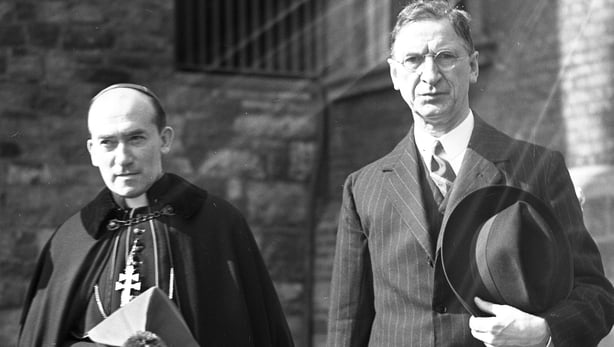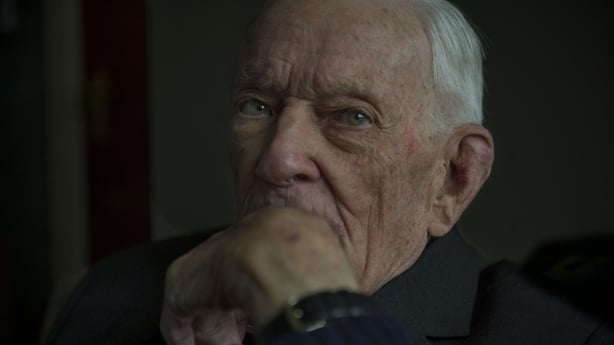Sunday 29 July is the 50th anniversary of the publication of Pope Paul VI's controversial teaching document Humanae Vitae (On the Regulation of Births).
The 30-page document became best known as a reaffirmation of the Catholic Church’s prohibition of artificial contraception, first promulgated in 1930 by Pope Pius XI.
It was immediately mired in controversy because, two years earlier, an advisory commission established by Pope John XXIII, and broadened by Pope Paul to include a handful of married couples and other lay people, had recommended that the pontiff should lift the ban.
The leaking in the media of the commission's views in 1967 had generated a widespread expectation of change which dramatically evaporated this weekend 50 years ago.
One leading conservative cleric at the heart of the commission claimed that Pope Paul had been "reconverted" to the status quo.
The divisiveness of the summer of 1968 is still apparent throughout the Catholic world and, arguably, did more than the subsequent clerical sexual abuse scandals to propel the Republic of Ireland into its 'post-Catholic' era.
Beyond traditionally Catholic cultures, antipathy to Humanae Vitae (HV) is particularly virulent.
For example, earlier this month on a visit to the Vatican, Britain’s International Development Secretary urged Church officials to make it easier for young girls to have access to contraception.
Pope Paul's reasoning
In HV, Pope Paul wrote that "sexual intercourse which is deliberately contraceptive" is "to be absolutely excluded" and that "it is never lawful, even for the gravest reasons, to do evil that good may come of it".
Dr Melissa Moschella, a philosophy professor at the Catholic University of America, explains that HV teaches that if a married couple faces a serious reason to avoid pregnancy, they may do so through natural family planning, a process that involves identifying a woman's fertile periods and abstaining from sexual activity during those times.
Pope Paul argued that this so-called "rhythm method" is permissible because it takes advantage of a faculty provided by nature.
He also warned that the acceptance of artificial methods of birth control would trigger a general lowering of moral standards resulting from sex without consequences.
The spread of abortion and sterilisation was predicted in this scenario.
HV added that the use of the contraceptive pill and condoms increased the danger of men reducing women to being mere instruments for the satisfaction of their own desires.
And it cautioned that governments would abuse their power by pressurising their populations to have fewer children.
Communist China's (recently relaxed) "One Child" policy, which was introduced in 1979, is the most extreme example of this latter prediction which Pope Paul's supporters would cite today.
Ireland
The reaction in Ireland was mixed.
The Republic's most powerful religious leader, Archbishop of Dublin John Charles McQuaid, called the first news conference of his 28 years in Drumcondra to unveil the encyclical and seemed to one religious affairs correspondent, John Horgan of The Irish Times, to delight in his discomfiture and that of his colleagues who had predicted that the pope would go the other way.

Mr Horgan said that sales of the pill faltered (it was available on prescription as a cycle regulator, but had been outlawed along with all other contraceptives in 1935.)
He also said the birth rate blipped upwards and the then Irish ambassador to the Holy See reported to Iveagh House "his obsequious assurances to Cardinal Benelli (the Holy See’s deputy secretary of state) that the government was not only acting in accordance with the encyclical's exhortations to public bodies, but had in fact anticipated them.
It was - although we did not know it at the time - almost the last gasp of the old order".
Three years later, the Irish Women's Liberation Movement staged its tumultuous train ride to bring contraceptives from Belfast to Dublin, and Mary Robinson's bill to liberalise the law on contraception was refused its first reading in the Seanad," Mr Horgan notes.
The "holy blanket" in which independent Ireland had been wrapped in 1935 was dismantled primarily because of Mary McGee.
In 1974, the 27-year-old married mother persuaded the Supreme Court that her life would be endangered by a further pregnancy unless she could import contraceptives by post.
The court ruled that the 1935 legislation, which prohibited such importation, was an impermissible interference with her constitutional right to life.
But that same year, then Fine Gael taoiseach Liam Cosgrave led a rump of his own TDs party into the "No" lobby to defeat his own government’s contraceptive legislation.
From the RTÉ Archives
1971: Women's lib and the Contraceptive Train
1972: Changing views on contraception
1978: Dublin condom shop
1985: Family planning Bill permits sale of condoms
1991: Condoms to become more widely available
In doing so, he was obeying Pope Paul’s call on Catholic public representatives to prohibit the sale of the pill, condoms and similar products.
It was not until 1979 that Charles Haughey steered legislation through the Oireachtas allowing for the sale of contraceptives for "bona fide" family planning.
This meant that contraceptives could be provided primarily to married couples only and on prescription from a medical practitioner.
It was dubbed "an Irish solution to an Irish problem".
However, the majority of younger Irish Catholics were voting with their feet against the writ of the Vatican.
The evidence is writ large in the population trends.
Official figures show that, in 1962, there were over 2,000 births to mothers who had 10 or more previous children. There were only 55 such births in 1998.
The Central Statistics Office says that while the overall birth rate remained relatively stable from 1949 until the early 1980s, there was a dramatic fall after that.
The crude birth rate - that is the number of live births divided by the total population - fell from 21.5 babies born per 1,000 persons in 1949 to 14.5 in 1998.
And increasingly women were postponing having their first baby as the women’s movement made its impact along with pay equality laws which came into force thanks to EU membership.
In 1971, eight years before the first papal visit here, a quarter of women in the 25-29 age group gave birth.
But by 1998 that had fallen to one-tenth.
But the Irish hierarchy remained silent in the face of this stampede from the rule of Rome.
Priests who dissented were disciplined.
The first and, for decades, the only critic here was the late Fr James Good, a lecturer in moral philosophy in University College Cork.

His bishop Cornelius Lucy suspended him from diocesan functions, principally preaching and hearing confessions.
After a period in physically comfortable exile in a monastery in Limerick, where he took on different academic work, Fr Good decided to go on the missions in Kenya where years later, in retirement, Dr Lucey joined his troublesome priest for a genuine reconciliation.
Fr Good said his bishop had no option but to discipline him but never changed his views on HV.
Silenced priests - Fr Tony Flannery, the late Fr Sean Fagan, Fr Owen O’Sullivan and Fr Brian Darcy, to name a few - have suffered even more for their dissent from HV’s teachings.
Some, like Fr Fagan, the author of a now-banned best-selling textbook "Can Morality Change?", first spoke out during the reign of Saint Pope John Paul II (1978-2005).
The Polish pope had been a central contributor to the push-back against the Papal Commission’s 1966 report which had advised Pope Paul VI to lift the ban on artificial contraception.
And St John Paul made it a condition of appointment for his new bishops that they defend the controversial document.
The same applied to Pope Benedict (2005-2013).
It is impossible to quantify the impact of HV on the wider Church here but mass attendance declined from well over 90% in the 1960s to less than a half in the early 1990s.
As the clerical child abuse scandals did not begin to emerge in the mainstream media until 1994 when paedophile priest Brendan Smyth was "outed", it's fair to say that the contraception ban was a significant contributor to the marked and progressive alienation of Catholics from their Church.
Pope Francis
In 2014 a poll by the media company Univision of 12,000 Catholics in 12 countries across five continents showed that 79% favoured the use of contraceptives - 93% in Brazil, 84% in Italy and 68% in the Philippines.
In the US, a 2016 study by the Pew Research Centre found that only 13% of weekly mass-going Catholics thought contraception was morally wrong.
Unison found that nine out of ten of Pope Francis' own coreligionists in Argentina opposed the teaching of HV.
However, earlier this year, Pope Francis was challenged to discipline a theologian who defended the use of artificial contraception but, so far, he has steadfastly refrained from doing so.
Last December in a lecture at the Pontifical University in Rome, Fr Maurizio Chiodi is reported to have said there are "circumstances I refer to Amooris Laetitae, Chapter 8, that, precisely for the sake of responsibility, require contraception."
The title of chapter eight of Pope Francis' 2016 book, entitled "The Joy Of Love" in English, is "Accompanying, Discerning and Integrating Weakness".
The Catholic philosopher Josef Seifert, a former member of St John Paul II’s Pontifical Academy for Life, called on Fr Chiodi, a recent appointee to the same body, to revoke his "grave errors" or resign.
Fr Chiodi was appointed to the Pontifical Academy for Life last year when Pope Francis revamped it, removing almost 100 members and appointing 45 new ones.
Approached by the Catholic Herald last January, Fr Chiodi did not deny making the remarks but said he preferred not to comment.
The Catholic Herald describes Josef Seifert, an Austrian philosopher, as an associate of St John Paul II.
He said Fr Chiodi’s view was "in radical and direct contradiction to the teaching of the … Church".
It was a "central moral teaching", Mr Seifert added, "that a wonderful and deep link exists between the conjugal loving union and procreation, such that any single contraceptive act that separates the unitive from the procreative meaning of the conjugal act is intrinsically wrong in any situation."
He said he hoped that Pope Francis and members of the Pontifical Academy for Life, especially its president Archbishop Vincenzo Paglia, "will ask Fr Chiodi to revoke these grave errors, or to resign immediately his membership in this illustrious academy, whose founder and spiritual father, Pope John Paul II, unambiguously and consistently fought against precisely these same errors that Fr Chiodi now proposes, and condemned them in a definitive way".
The Catholic Herald adds that before the reforms initiated by Pope Francis, all members of the academy had to take an oath to defend certain Church teachings.
Having taken the oath, Mr Seifert said he would feel "profound sadness" at the "betrayal" of the academy if Fr Chiodi’s views were not retracted by the priest himself, the academy or Pope Francis.
Watch that space!
Tomorrow – RTÉ’s This Week radio programme will feature interviews with two Irish catholic parents on opposing sides over the publication of Pope Paul the Sixth's Humanae Vitae document







